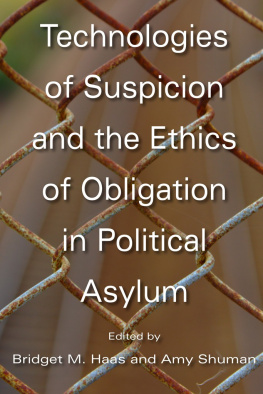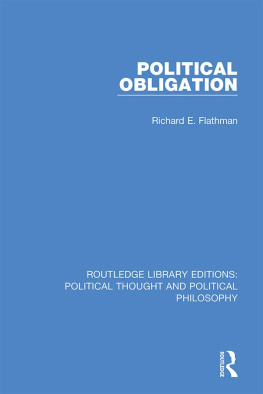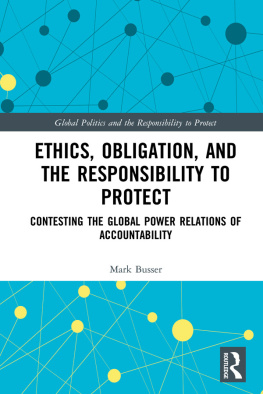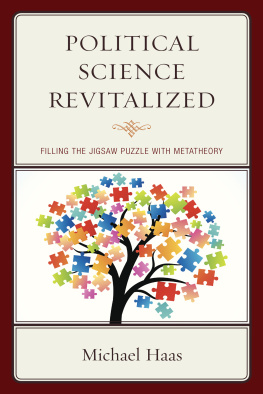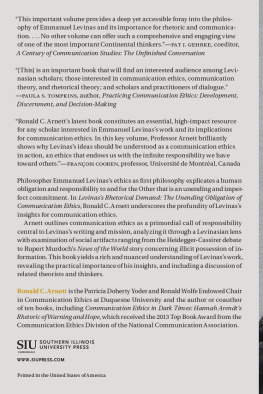Technologies of Suspicion and the Ethics of Obligation in Political Asylum
SERIES IN HUMAN SECURITY
Series editors: Geoffrey Dabelko, Brandon Kendhammer, and Nukhet Sandal
The Series in Human Security is published in association with Ohio Universitys War and Peace Studies and African Studies programs at the Center for International Studies and the Environmental Studies Program at the Voinovich School of Leadership and Public Affairs.
Technologies of Suspicion and the Ethics of Obligation in Political Asylum, edited by Bridget M. Haas and Amy Shuman
Technologies of Suspicion and the Ethics of Obligation in Political Asylum
Edited by
BRIDGET M. HAAS AND AMY SHUMAN
OHIO UNIVERSITY PRESS
ATHENS
Ohio University Press, Athens, Ohio 45701
ohioswallow.com
2019 by Ohio University Press
All rights reserved
To obtain permission to quote, reprint, or otherwise reproduce or distribute material from Ohio University Press publications, please contact our rights and permissions department at (740) 593-1154 or (740) 593-4536 (fax).
Printed in the United States of America
Ohio University Press books are printed on acid-free paper

29 28 27 26 25 24 23 22 21 20 19 5 4 3 2 1
Library of Congress Cataloging-in-Publication Data
Names: Haas, Bridget M., editor. | Shuman, Amy, date, editor.
Title: Technologies of suspicion and the ethics of obligation in political asylum / edited by Bridget M. Haas and Amy Shuman.
Description: Athens, Ohio : Ohio University Press, 2019. | Series: Series in human security | Includes bibliographical references and index.
Identifiers: LCCN 2018056335| ISBN 9780821423783 (hardback : alk. paper) | ISBN 9780821446676 (pdf)
Subjects: LCSH: Political refugees--Government policy--Case studies. | Political refugees--Legal status, laws, etc.--Case studies. | Asylum, Right of--Case studies. | National security--Technological innovations--Case studies. | Immigration enforcement--Technological innovations--Case studies. | BISAC: POLITICAL SCIENCE / Political Freedom & Security / Human Rights. | SOCIAL SCIENCE / Anthropology / General.
Classification: LCC JV6346 .T43 2019 | DDC 323.6/31--dc23
LC record available at https://lccn.loc.gov/2018056335
Contents
Bridget M. Haas and Amy Shuman
Nadia El-Shaarawi
Charles Watters
John B. Haviland
Bridget M. Haas
Benjamin N. Lawrance
)
Marco Jacquemet
Ilil Benjamin
Sara L. McKinnon
Rachel A. Lewis
Amy Shuman and Carol Bohmer
Amy Shuman and Bridget M. Haas
Acknowledgments
The idea for this volume started to take shape when we, the editors of this volume, organized a panel, Asylum and Politics of Suspicion, for the 2014 American Anthropological Association (AAA) conference in Washington, DC. Several of the contributors to this volume presented papers at the panel or served as discussants. Thanks to Heath Cabot for chairing that panel and for her insights and important contributions to that discussion. Following the AAA panel, we received funding from the Wenner-Gren Foundation and the Mershon Center for International Security Studies at the Ohio State University (OSU) to hold a day-and-a-half workshop on Asylum and the Politics of Suspicion in March 2015 at OSU. We thank the Wenner-Gren Foundation and Richard Herrmann, director of the Mershon Center, for their generous support, without which the workshop would not have been possible. We would like to also thank Nick Spitulski, program coordinator at OSU, for his outstanding job handling the logistics of the workshop, arranging transportation, lodging, and meals for the group. The OSU workshop brought together participants of the earlier AAA panel as well as additional scholars doing important work on political asylum. The papers presented at that workshop were revised and crafted into the essays you see in this volume.
We would like to thank the contributors who participated in the original workshop and contributed their essays to this volume. The depth and breadth of intellectual work represented in these pages is impressive, and we are very fortunate to be able to include their work together in this book.
We would like to thank the editors and staff at Ohio University Press / Swallow Press, including the editors of the Series in Human Security: Geoffrey Dabelko, Brandon Kendhammer, and Nukhet Sandal; and managing editor Nancy Basmajian. Thank you to copyeditor Don McKeon for his excellent work. We would particularly like to thank Rick Huard at Ohio University Press, who has guided this project toward completion. The editors and authors of the volume would like to thank two anonymous reviewers, whose thoughtful and valuable feedback strengthened the individual chapters and the book as a whole.
Introduction
Negotiating Suspicion, Obligation, and Security in Contemporary Political Asylum Regimes
BRIDGET M. HAAS AND AMY SHUMAN
Asylum seekers are increasingly the focus of global debates surrounding humanitarian obligations on the one hand and concerns surrounding security and border control on the other. Asylum seekers are at turns portrayed as innocent victims in need of humanitarian protection and as queue jumpers or threats to the body of the host nation. Recent coverage of the European migration crisis illustrates these competing representations of asylum seekers.
On September 2, 2015, newspapers across the globe carried the sobering image of the lifeless body of Alan Kurdi, a three-year-old Syrian boy who had washed up on a beach in Turkey. He, along with his mother and two siblings, had died fleeing their homeland in search of safety in the European Union (EU). This incident served to reframe the narrative of the migrant crisis that had started earlier that year and had reached immense proportions by this time. The view of migrants, and Syrian ones in particular, began to shift from suspicious Other or potential terrorist to humanitarian victim.
If coverage of Kurdis death represented a shift in the narrative of the migrant crisis, it was short-lived. On November 13, 2015, a series of coordinated terrorist attacks in Paris transfixed the world. It was soon revealed that one of the terrorists held a fake Syrian passport and had entered France through the migrant trail that flowed from the Middle East, passing through Greece, Macedonia, and Serbia and into Western Europe. The global response to the Paris terrorist attacks was swift: borders closed and the processing of refugees was slowed or temporarily ceased at EU countries borders.
The shifting public narratives and policy responses concerning the EU migrant crisis represent a new iteration of tensions between humanitarian ethics and security concerns that are generated by international migration. This tension between humanitarian obligations and the security of the state have been evident since the inception of international refugee policy, though events such as the 2001 terrorist attacks on the World Trade Center and the November 13, 2015, attacks in Paris bring these tensions to the fore, as they are acutely experienced and debated. Indeed, in a post-9/11 landscape (and now reinvigorated after 11/13), volatile debates have taken place pitting humanitarian ethics against notions of security and border control. To be sure, at the time of completing this introductory chapter, US president Donald Trump issued an executive order barring refugees and immigrants from seven predominantly Muslim countries from entering the United States. The travel ban, quickly dubbed a Muslim ban by media and opponents of the measure, was soon met with widespread protests and legal challenges across the country. Months later, in October 2017, Trump laid out a new immigration strategy that focused on overhauling the US asylum system, including narrowing the standards required to gain asylum and imposing penalties on asylum seekers who file claims deemed to be fraudulent. The strong divisiveness of the debate surrounding these measures speaks to the enduring and entrenched nature of the tensions between humanitarian obligations and concerns over national security.


